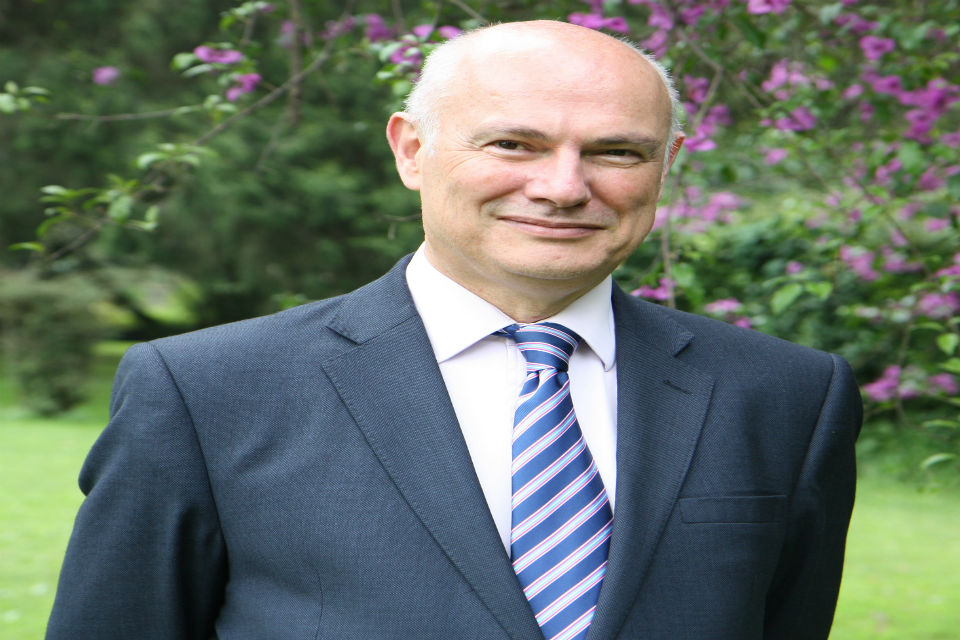UK Presidency of the UN Security Council
Remarks on an event to mark the UK’s Presidency of the UNSC in November

•Welcome. Wanted to gather fellow UNSC members and AU and other UN partners together to mark the UK’s Presidency of the UNSC in November. Main purpose is to network, but wanted to say a few words on our overall approach to the Presidency.
•Before I do so, may I congratulate the African UNSC members Chad and Nigeria who leave the UNSC at the end of December for their hard work over the past two years and say how much we look forward to working with Egypt and Senegal, who join the UNSC in January.
•The UK approach to our Presidency this month is one of transparency, efficiency and innovation – those are the keynotes - we want to use this month to guide a Council that is open to, and reflective of, the modern world, and one that can come together to meet complex challenges of the day, taking full account of the views and expertise of the region.
•And I should like to emphasise our desire to see the UNSC and AU working together ever more closely and effectively, as the implementation of the UNSG’s recommendations in response to the High Level Panel report on Peace Operations is taken forward. The UK fully supports the AU suggested principles of burden sharing, comparative advantage, and division of labour, backed by close and constant collaboration.
•The challenges of the day are clear for all to see, not least on the Middle East issues which are already dominating business during November. Syria – where hundreds of thousands have been killed and millions displaced - remains a top priority for the Council.
•But more widely, increased violence and instability across the Middle East continues to be of serious concern: from Yemen to Israel and the Occupied Palestinian Territories, to Libya, where the situation is so fragile.
•So much of our Presidency will be devoted to mobilising the Council to tackle these grave threats, which are global in their impact.
•Of course this need for progress extends far beyond the Middle East. Here in Africa, much more must also be done. That is why our Foreign Secretary, alongside the UN Secretary General, is – as we meet here tonight - hosting a briefing on Somalia. The Council has already given its backing to increased support for UNSOA, whose name may change to UNSOS, allowing it to consolidate and build upon the progress made in that country. We were pleased that our Prime Minister was able to announce a specific UK contribution to UNSOA during UNGA.
•The UNSC will also turn its attention to the deteriorating situation in Burundi and there will be discussions on UNAMID/Darfur, South Sudan and the Sahel.
•The UN – and its Security Council – is at the heart of the rules-based international system, and we will use our Presidency to uphold that system and advance essential norms.
•To that end, our Development Secretary will host an important open debate on Conflict Prevention. She will make clear that inclusive societies – with effective and accountable institutions and respect for the rule of law – are essential for lasting peace. There is particular resonance here in the case of the rule of law, bearing in mind that this year is the 800th anniversary of Magna Carta – one of the many national and international legal documents specifically inspired by Magna Carta was of course the Universal Declaration of Human Rights. The debate on Conflict Prevention will build on the groundbreaking Sustainable Development Goals, agreed in New York in September. It will be the first ever UNSC meeting of International Development Ministers.
•We will also take stock of international peacekeeping – a fundamental part of upholding the rules-based system - with the first Council discussion of the UNSG’s response to the High-Level Panel Report on Peace Operations. And we will recognise the contribution made by police to those peace operations, through a briefing from their commissioners.
•The UK’s approach to the Security Council is formed of 4 pillars – tackling threats, shaping rules, supporting reform and maximising outreach. We will embed that in our Presidency, ensuring our reform-minded outlook and outreach to others can uphold the rules and tackle the threads the Security Council is charged with addressing.
•I shall be leaving here at the end of my posting in mid-December. Although there will be other chances to bid farewell, just wanted to take the opportunity of tonight to thank everyone here for their friendship and collaboration over the past four years. A lot has been achieved during that period, and I have to say that it’s never been dull!